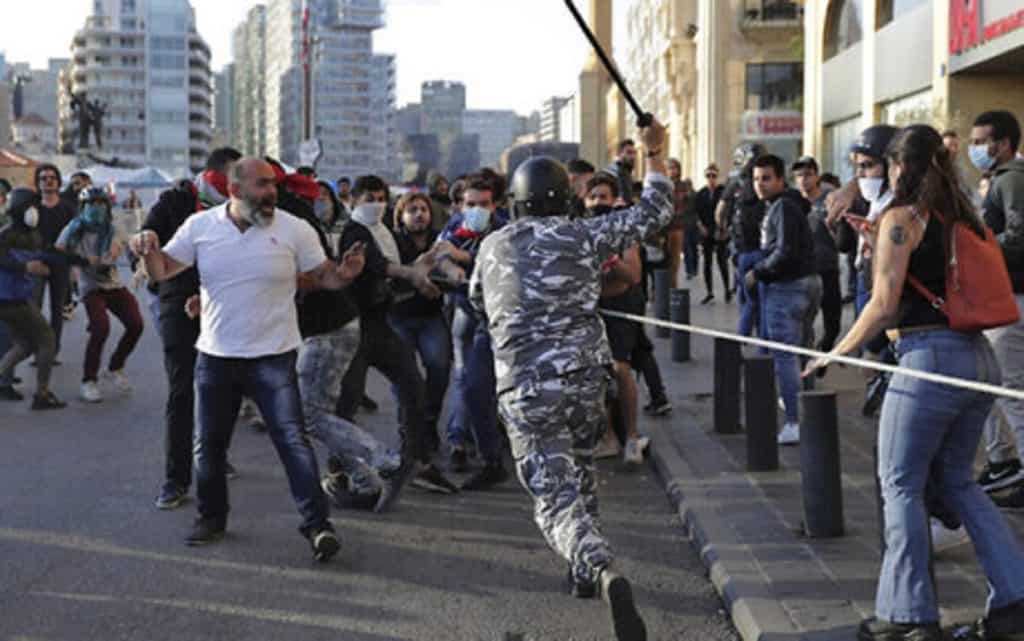By Denis Korkodinov
Following the easing of the quarantine regime, Lebanon is facing a new political reality. Two months of social isolation had as result the resumption of protests across the country. And, apparently, in the post-coronavirus era, Lebanon seems to become the pioneer of a new phase of the “Arab spring”.
The new national government, led by Hassan Diab, was unable to create conditions for public peace, and the redeployment of political cadres in Lebanon did not contribute to solving the pressing problems of ordinary citizens. Lebanese, for the most part, continued to suffer from poverty. Moreover, under the influence of the coronavirus pandemic, the people were even poorer. Under such conditions, the resumption of social unrest became almost inevitable.
Currently, no expert can say for sure when the pandemic will end, meanwhile, due to the introduced restrictions related to the elimination of the consequences of COVID-19, the economic situation has continued to deteriorate daily. This even more suppresses ordinary Lebanese who refuse to adapt to new living conditions in a regime of self-isolation and require fundamental changes and, above all, respect for their freedom.
Violations of the self-isolation regime have become commonplace in Lebanon’s social life, and the government has been unable to keep people in their homes, giving them empty promises of maximum assistance. Such quarantine violations quickly gained a political context, as people began to accuse the current authorities of completely neglecting human rights.
Undoubtedly, the political parties and nationalist groups that supported people during the social unrest that began on October 17 quickly took advantage of the situation and were able to lead the crowd after the lifting of the “anti-coronavirus” measures. In particular, the Lebanese Forces political bloc has become the leader of social outrage directed against the government of Hassan Diab. This allowed to give an additional impetus to the protests, thanks to which the Lebanese had the opportunity to once again achieve the resignation of the country’s prime minister.
The renewed social protest in Lebanon is traditionally associated with Iran, which supports the Hezbollah movement. Tehran has become a stumbling block for Lebanese nationalists, demanding full independence, as they had previously demanded Lebanon’s independence from Syria. For this reason, Western countries, and, above all, the United States supported the protests in Lebanon. However, it is certain that Washington, in this case, also pursues its own interests. The White House administration uses the social discontent of ordinary Lebanese to weaken the position of the Ayatollah regime in the region. In this regard, Lebanon for the United States acts as an instrument of the anti-Iranian campaign.
Probably, a change of power, if t happens in Lebanon under the influence of protests, will not lead to painful consequences throughout the Middle East. Meanwhile, the Lebanese are unlikely to be satisfied if, despite their demonstrations, nothing will change in public life, which over the past 30 years has deprived Lebanon of the opportunity to be a prosperous country. Today, ordinary citizens require the government of Hassan Diab to pay maximum attention to human rights. The further regime of restrictions implemented under the pretext of combating coronavirus is unlikely to lead to stability in Lebanon. Therefore, the Lebanese are extremely determined in demanding a change of power at all costs.
Regardless of who leads the Lebanese protest, we can make an unambiguous conclusion that the Lebanese have now reached the “boiling point”: mass unemployment, inflation and hunger have made people extremely combative. At the same time, news in the media about purchases by representatives of the Lebanese elite of expensive cars and houses, when most ordinary citizens are forced to put up with the regime of self-isolation, made protests almost inevitable.
And while in the speeches of October 17, the opposition moods, has been accumulated on the streets during the mass protests, during the quarantine period, criticism of the current authorities moved inside the private houses of citizens. Based on this, people began to express more radical opinions, not fearing that the government and the police would intervene in private conversations. As soon as the regime of self-isolation has been weakened, the criticism about the state policy quickly return to spread on the streets, becoming the main motive for social protests in Lebanon.
Citizens had no choice but to start protesting, to ask for higher wages and jobs, and to demand the government’s resignation. People are tired of living in poverty in a country that once was called the “Arab Switzerland”. And also due the coronavirus pandemic, the situation in the country seems going out of control: now the country seems ruled by the streets , seeking for a change in the current political regime.
(The opinions expressed in this article are solely those of the author and do not necessarily reflect the views of World Geostrategic Insights)
Image Credit: AP







